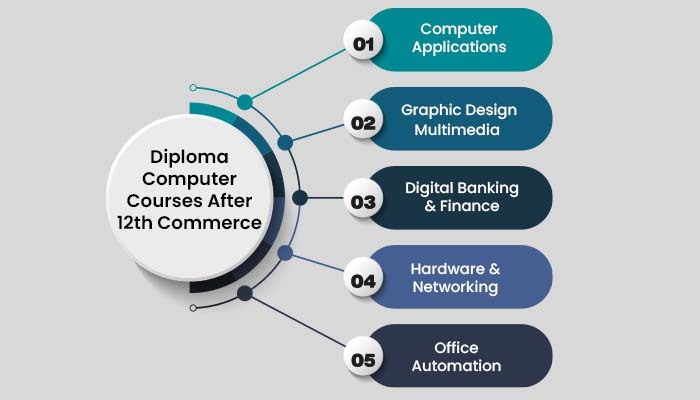Introduction
In our fast-paced digital world, computer skills are a necessity in almost every profession. Even at the entry level, it’s critical to know how to do basic things like processing emails, and at more advanced levels, you’ll be working with digital content such as marketing, graphic design as a freelancer, or financial accounting. Computer skills will help you work smarter and make your time more efficient! By gaining proficiency in these skills, you will not only be more productive, but you will also have more pathway choices to apply your skills across industries. Employers are looking for people who can adapt to their digital tools and their digital workflows. In this blog I will unpack what today’s essential computer skills are, which skills are in high demand to learn, and how to begin your learning process to advance towards computer skills for job success.
How Computer Skills Improve Your Job Prospects

Increase in Job Opportunities and Salary Potential
Holding strong computer abilities greatly broadens access to better employment opportunities and higher-compensated employment. Today’s employers want candidates who can leverage digital apps, no matter the industry, be it marketing, finance, administration, or design. Candidates with certified knowledge of programs like Excel, Tally, Photoshop, or any digital marketing platforms will get more interview calls and better salary packages than candidates without those skills because these digital skills are in demand. As the world continues to digitize, workers have skills that employers want to keep as praise points, so those workers are more likely to be offered promotions and opportunities for longevity in their temperament towards employee development.
Ability to Apply for Remote, Freelance, and Corporate Jobs
Technological competency allows you to experience combination types of work arrangements: remote, freelance, and full-time corporate-type roles. Whether having a conversation over collaboration tools like Zoom and Slack or managing a project using tools like Trello or Google Workspace, being tech-savvy simply means you can be productive wherever you are. There are many roles where using skills of graphic design, content writing, coding, or digital marketing presents huge opportunities within the realm of freelance, where you can work for clients around the world, earn, and be independent. The flexibility offered by a technology-oriented role will allow you to pursue opportunities beyond the traditional office role.
Examples of Roles That Require Specific Computer Skills
There are many new, fast-growing job roles that require computer-based skills. For example, a digital marketing executive needs experience with SEO tools and social media tools. A person working as an accountant should know how to use Tally with GST and, at the minimum, use Excel to generate a financial report. When we come to graphic designers, they need to have Adobe Photoshop, Adobe Illustrator, and CorelDRAW experience to create visual content. Even administrative assistants nowadays need to do data entry and be proficient in MS Office! All of these roles show that computer skills have become necessary for almost any job.
Where and How to Learn These Skills
Importance of Choosing the Right Training Institute
When you’re trying to learn in-demand computer skills, it’s important to choose a good training institute. A good institute will offer you up-to-date training materials, provide hands-on practical training, and ultimately prepare you for the workforce. Global Institute of Computer and Technologies (GICT) focuses on skill-based learning through instructors with expert knowledge, real-world projects, and guidance from career counselors. GICT believes that whether you are just beginning to learn computer skills or looking to upgrade your skills, an industry-related curriculum will ensure you’ll be competitive in the job market.
Short-Term vs. Long-Term Courses

Getting a sense of the characteristics of brief and extended computer courses will help you determine your own timeline and goals. Brief courses that consider areas like Tally with GST, graphic design, and basic digital marketing are important first steps to learn skills that lead to industry entry, which you can build upon in the future. Extended computer courses will help you develop more in-depth knowledge of the technology and tools that you use, which are valuable for someone who is seeking or transitioning into more advanced job roles. Whether you are considering either a short or long course, we will discuss the possibilities of professional improvement, skills growth, or stages of development, whichever is important depending upon the speed of the learning pace and goals in the public and private sectors.
Online vs. Offline Learning Options
Due to rapid technological advancement, students have a choice between online or offline learning. Online courses have the benefit of convenience, allowing students to learn anytime and anywhere, making them a good option for working professionals. Offline classroom training and GICT offer one type of option, providing direct access to instructors, practical training, and a dedicated learning environment. Another option worth exploring is having online learning and offline practice as a blended learning, which will likely result in effectively mastering any computer skill.
Tips to Keep Your Computer Skills Updated
Importance of Continuous Learning
In a fast-growing digital world, continuous learning is central to remaining current and competitive within your profession. With the rapidly evolving technologies overall and changing expectations by employers, professionals must be able to pivot quickly. By engaging in lifelong learning, professionals will stay informed on up-to-date practices and industry standards and will allow themselves opportunities for alternate career propositions. By keeping your skills fresh, you demonstrate proactiveness, build on your overall confidence, and prepare for other disruptions within your profession.
Resources Like YouTube, Online Certifications, Webinars
While many experts in industry or higher education will ultimately tell you that actively practicing your computer and software skills is best, there is a seemingly infinite repository of free and paid options for maintaining and developing your computer skills. Most anyone can find a tutorial on anything computer-related on YouTube, from Excel shortcuts to Adobe Photoshop techniques. Certification platforms, including Coursera, Udemy, and LinkedIn Learning, also offer structured online courses as well as certificates (valuable additions to the resume). In addition, attending webinars hosted by experts keeps you in the loop on the current tools, trends, and best practices in the field. There are options for all levels of engagement, and the convenience of access makes these available for every learner.
Following Tech Trends and Practicing Regularly

Keeping current is not just about learning but also applying what you learn on a regular basis. Read tech blogs, sign up for newsletters, and stay active on LinkedIn so you can follow emerging tools and techniques. Continue to practice what you learn by taking on smaller projects, freelancing, or implementing your new software skills. The more you practice the knowledge you’ve gained, the easier it is to reinforce that knowledge, gain confidence, and never lose the ability to implement your skills in real time.
Conclusion
In today’s digital-first age, computer skills aren’t optional—they’re essential for workplace success. If you want a better job, a freelance career or to grow in an existing role, being good at valuable computer skills will set you apart from the competition. Skills such as digital marketing, graphic designing, financial accounting, and Tally with GST will open up new pathways for direct employment or entrepreneurship. In a competitive job market, having good computer skills, quality training, and continual learning and practice, as well as keeping abreast of new developments. Start with GICT and take the first step towards the tech industry and an exciting and bright future.



